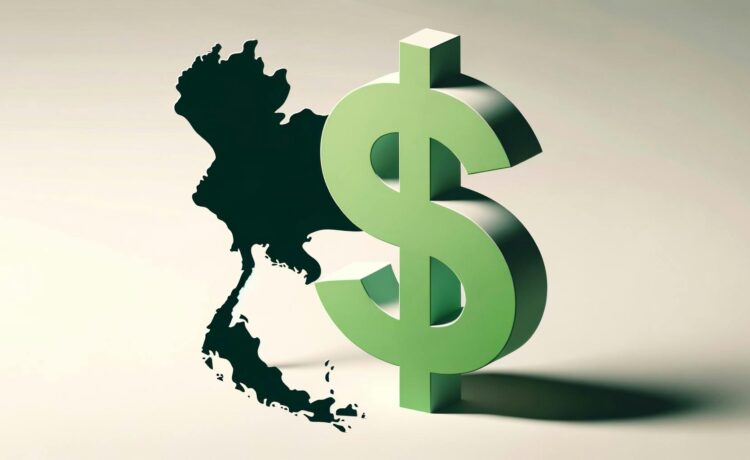What’s going on here?
The Thai baht slipped to a six-week low against the US dollar, as strong American economic indicators dampened expectations for Federal Reserve rate cuts.
What does this mean?
The US dollar’s strength and potential for higher Treasury yields are overshadowing Asian currencies. The US dollar index rose to 104.33, close to its late July high, while the Thai baht dropped sharply to 33.80 per dollar. In contrast, the Singapore dollar, Philippine peso, and South Korean won held relatively steady with slight gains. Market concerns reflect broader emerging market risks, with a regional currency gauge falling 1.7% this month, marking its steepest drop since early 2023. Economic volatility in Asia links to regional growth shifts, possible political impacts from the upcoming US election, and changing gold prices.
Why should I care?
The bigger picture: Global economic shifts on the horizon.
A stronger US dollar and rising Treasury yields signal wider repercussions for global markets, notably in Asia. With the US economy showing vigor, emerging market currencies are under strain, impacting trade balances and inflation rates. Political elements, like Donald Trump’s potential re-election, could further influence these factors, complicating global economic forecasts.
For markets: Currency movements spell caution for investors.
The Thai baht’s decline and mixed regional equities have investors proceeding with care. While the Malaysian ringgit might strengthen if inflation meets targets, caution prevails amid the robust US dollar. Indonesia’s currency could gain from political stability despite potential rate changes. As Asian equities waver, key growth areas like Thailand’s automotive sector report downturns, highlighting the complex challenges in today’s fluctuating market environment.















